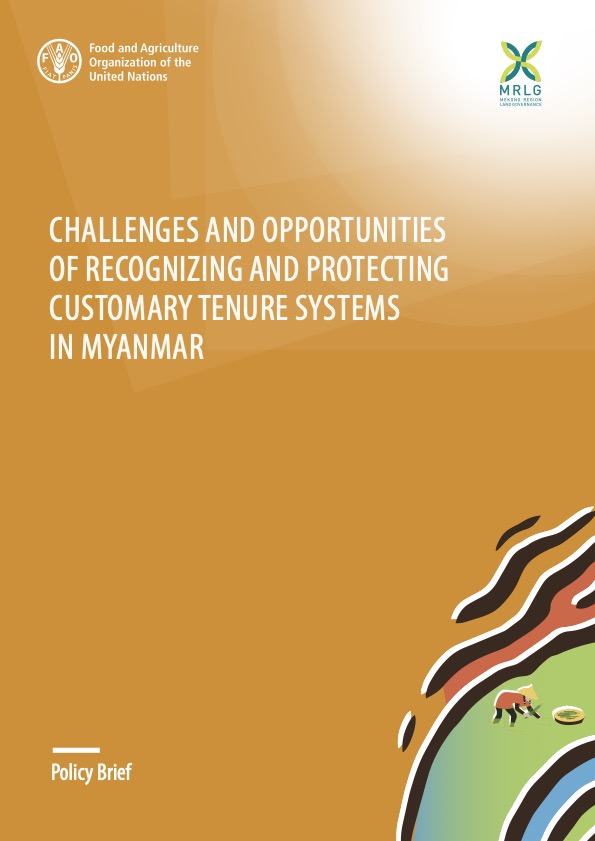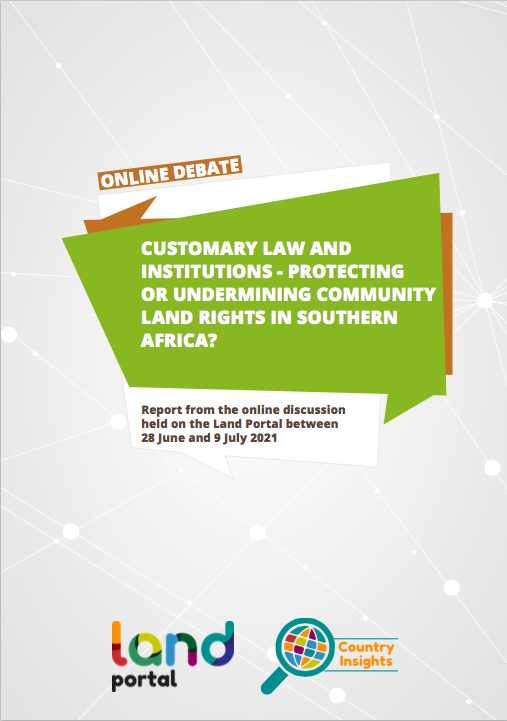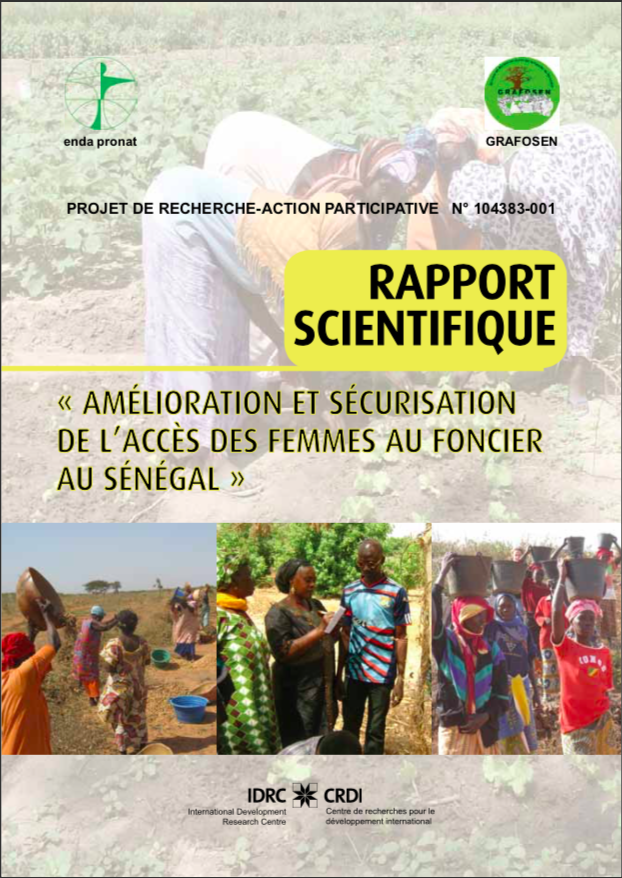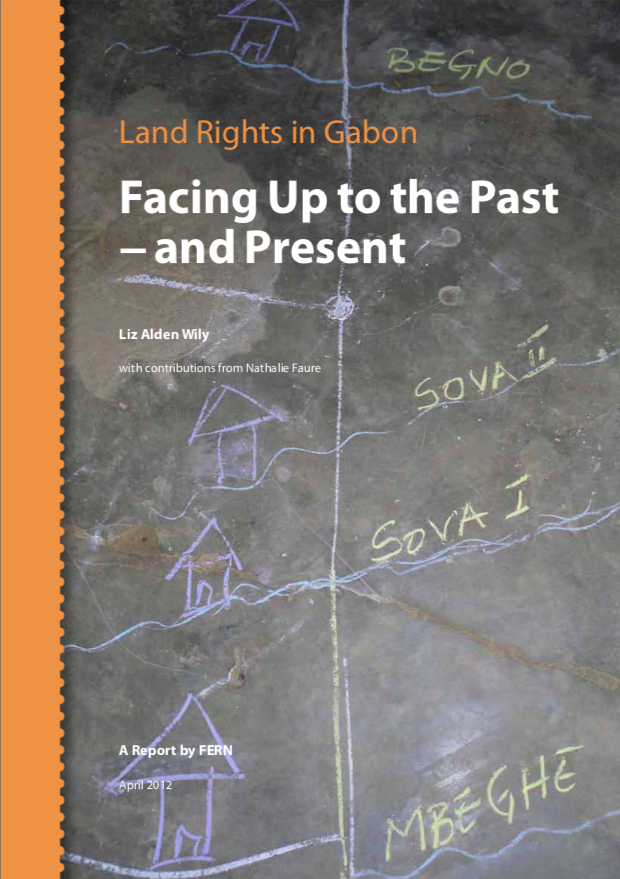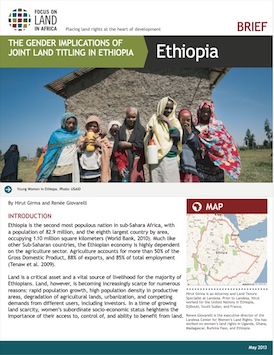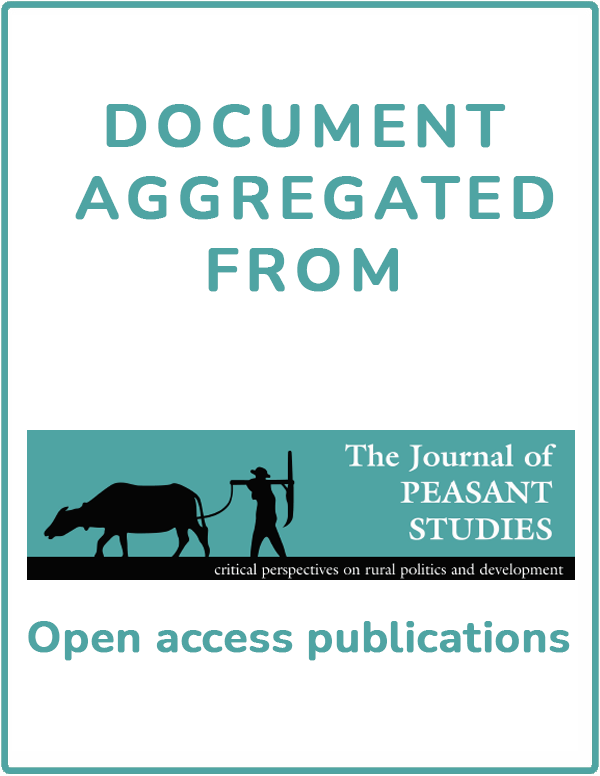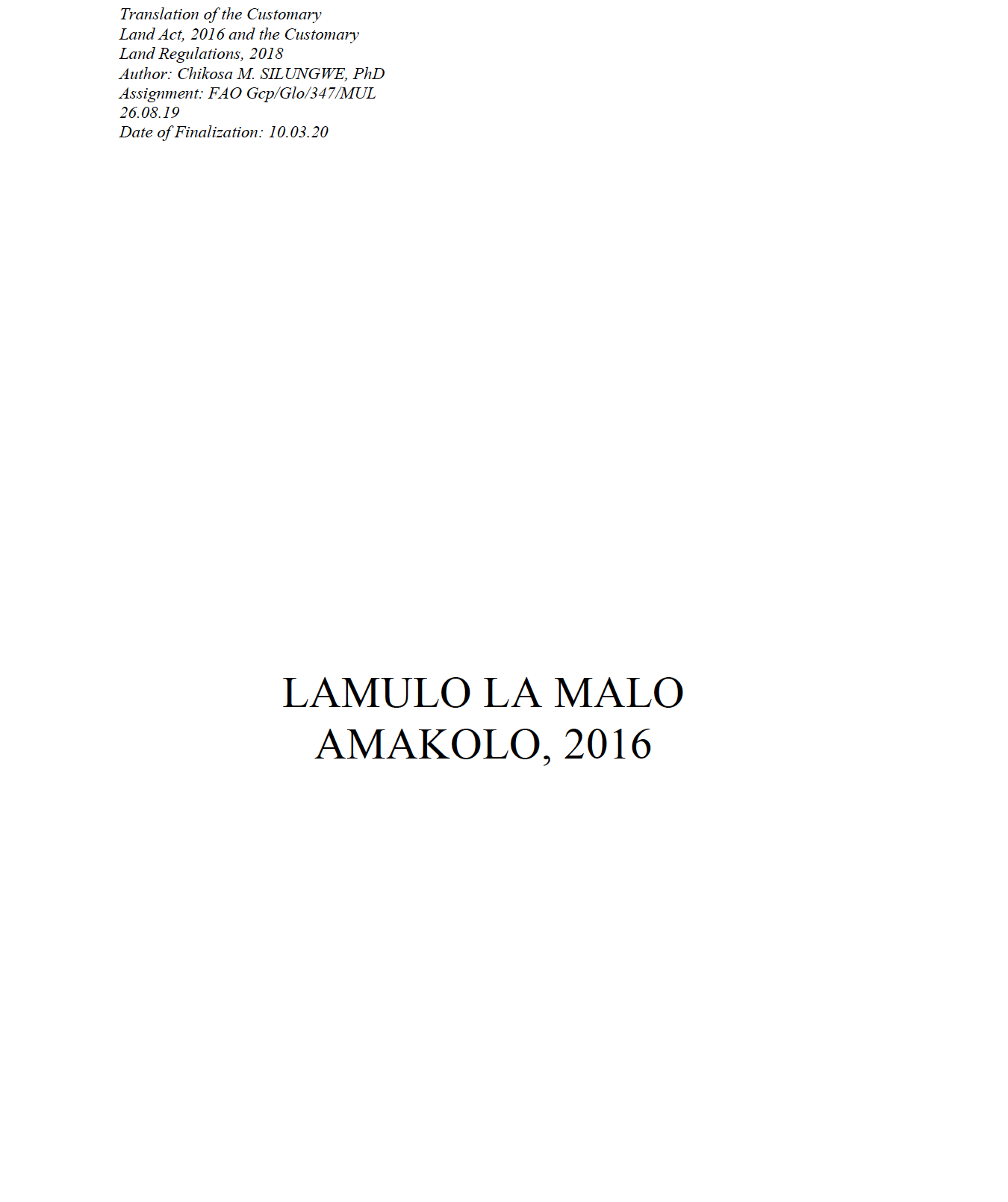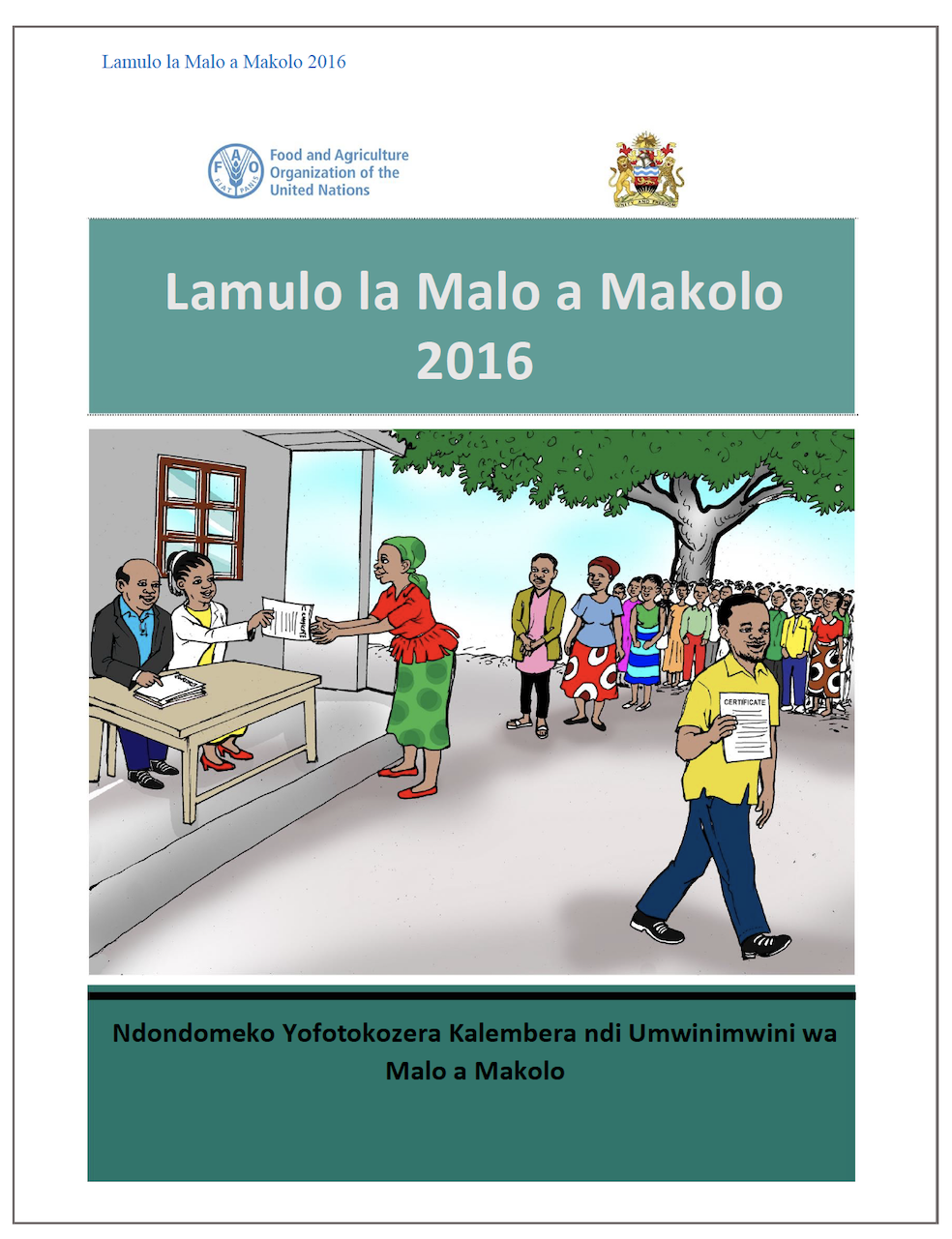Challenges and opportunities of recognizing and protecting customary tenure systems in Myanmar
This policy brief was developed in order to enable a meaningful engagement and policy dialogue with government institutions and other relevant stakeholders about challenges and opportunities related to recognizing and protecting customary tenure in the Republic of the Union of Myanmar.

